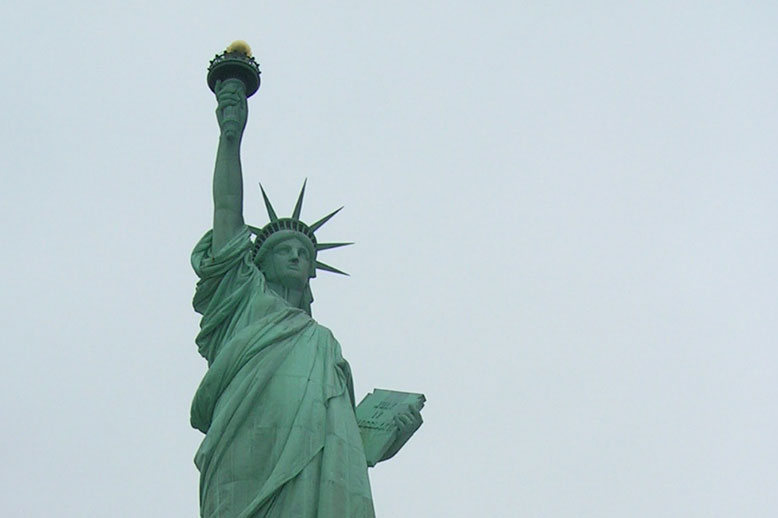The Civics Renewal Network is excited to welcome two new partners! Launched by New Hampshire Public Radio in 2017, Civics 101 Podcast is the podcast refresher course on the basics of how our government works. Hosts Nick Capodice and Hannah McCarthy take an expansive view of civics, exploring not only the institutions of government but also the rights and responsibilities of citizens no matter their age. Episodes are about 15 minutes and released every other Tuesday along with related educational resources.
The U.S. Capitol Visitor Center is the visitors’ gateway to the Capitol. Through educational programming, tours and exhibits, we inform, involve and inspire every visitor to the Capitol. Educational materials celebrate the art, architecture and history of the Capitol. We strive to stimulate discussions of the privileges and responsibilities of citizenship in our representative democracy and explain the role that Congress plays in our daily lives.
How Have Americans Responded to Immigration?
In this DocsTeach activity from the National Archives, students will analyze documents related to immigration in the United States. Then they will determine whether immigration was welcomed or feared by Americans, and to what degree, by placing each document on the scale according to their analysis.
For more resources from the National Archives, go here.
Civics 101 Podcast: New Jersey v. T.L.O.
Today we travel to the spring of 1980, where the presidential campaigns of Reagan and Carter take a back seat to an act of disobedience committed by a 14-year-old girl in Piscataway, N.J. The highest court in the land has to decide, how are your 4th Amendment protections different when you happen to be a student? This episode from Civics 101 Podcast features the voices of Professor Tracey Maclin from Boston University School of Law and Professor Sarah Seo from Columbia Law School. A graphic organizer is available for students to take notes on while listening to the episode.
For more resources from the Civics 101 Podcast, go here.
How a Bill Becomes a Law – Clean Water Act
The Federal Water Pollution Control Act, commonly known as the Clean Water Act, was originally passed in 1948. By 1972, Congress had voted on an amended version of the law that included the expansion of regulations to prevent pollution of the nation’s waterways. In this lesson from the U.S. Capitol Visitor Center, students consider how the Clean Water Act of 1972 became a law. They identify key moments in the evolution of this bill including its path in Congress, its veto by President Nixon and its eventual enactment. Preparing and organizing information, students interpret these key events and share them in a storyboard presentation. While intended for 8th grade students, the lesson can be adapted for other grade levels.
For more resources from U.S. Capitol Visitor Center, go here.

- Bill of Rights Institute: Enter the We the Students essay contest. Learn more.
- Bill of Rights Institute: Apply for its 2021-22 Teacher Council. Learn more.
- Center for Civic Education: Sign up for its We the People: A Leadership Summit on Civic Education. Learn more.
- Center for Civic Education: Accepting applications for Presidential Academy and Congressional Academy. Learn more.
- Civics 101 Podcast: Enter its Student Podcast contest “There Ought to Be a Law.” Learn more.
- Constituting America: Its 90-Day study of the Declaration of Independence starts Feb. 15. Learn more.
- Constituting America: Teachers and students can enter its We the Future contest. Learn more.
- C-SPAN: Apply for its summer virtual Teacher Fellowship program. Learn more.
- Edward M. Kennedy Institute for the United States Senate: Apply for its Civic Conversations Virtual Summer Institute. Learn more.
- George Washington’s Mount Vernon: Join Mount Vernon experts for education happy hours. Learn more.
- Gilder Lehrman Institute of American History: Nominate an outstanding history teacher. Learn more.
- Gilder Lehrman Institute of American History: Spring History School classes for elementary, middle and high school students announced. Learn more.
- National Archives: What Happens in Washington is a new distance learning program for K-2 students. Learn more.
- National Constitution Center: Sign up for live interactive classes on the Constitution. Learn more.
- National Constitution Center: Free, online teacher workshops available. Learn more.
- National History Day: Sign up to judge regional and affiliate contests. Learn more.
- NewseumED: Free professional developments webinars. Learn more.


